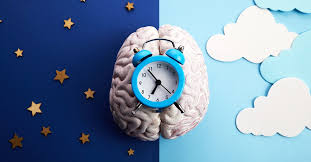Sleep is one of the most crucial aspects of maintaining mental and physical health, yet many people overlook its importance. While we rest, our bodies are busy repairing and rejuvenating, and this extends to our brains as well. Getting a good night’s sleep is essential for cognitive function, memory consolidation, emotional regulation, and overall brain health.
At BedStory, we believe in the power of quality sleep. In this article, we’ll explore the science of sleep and explain what happens to your brain when you sleep better. Whether you’re seeking to enhance memory, improve focus, or boost emotional well-being, better sleep can have profound effects on your brain.
-
Memory Consolidation and Learning
What Happens: During sleep, especially during deep sleep (slow-wave sleep) and REM (Rapid Eye Movement) sleep, the brain works to consolidate memories from the day. This means that your brain strengthens and stores new information, helping you retain what you’ve learned and making it easier to access this information later.
-
Memory Formation: As you sleep, the brain replays and strengthens neural connections related to recent experiences and learning. For example, if you’ve studied for a test or learned a new skill, your brain organizes and consolidates that information while you sleep, making it easier for you to recall the information when needed.
-
Improved Learning: Sleep also plays a role in enhancing your ability to learn new things. After a restful night of sleep, you’re more likely to recall new information or perform tasks that require problem-solving and creative thinking.
How Better Sleep Helps: A night of quality sleep ensures that memory consolidation and learning processes happen more efficiently. This is why students, professionals, and anyone who needs to absorb new information will benefit from adequate rest.
-
Enhanced Focus and Cognitive Function
What Happens: Sleep has a significant impact on your brain’s cognitive abilities, including attention, concentration, and problem-solving skills. When you don’t get enough sleep, your ability to focus and stay alert decreases significantly.
-
Attention and Focus: Poor sleep impairs your ability to stay focused, leading to difficulty completing tasks or maintaining concentration. When you sleep well, your attention span improves, and you can focus on tasks for longer periods without feeling distracted.
-
Problem-Solving and Creativity: REM sleep, the stage where dreams occur, is believed to play a key role in creative problem-solving. During REM sleep, your brain makes new connections between ideas, fostering innovative thinking and creative solutions.
How Better Sleep Helps: When you get sufficient, high-quality sleep, your brain can process and organize thoughts, allowing for better focus, sharper cognitive performance, and heightened problem-solving skills.
-
Emotional Regulation and Mental Health
What Happens: Sleep has a profound effect on how you process emotions. During sleep, your brain works to regulate and manage your emotional responses, which is vital for maintaining good mental health.
-
Stress and Anxiety: Lack of sleep has been shown to amplify feelings of anxiety and stress. When you don’t sleep well, the brain’s ability to regulate negative emotions is compromised, leading to heightened emotional reactions and increased vulnerability to stress.
-
Mood and Emotional Stability: Proper sleep helps stabilize your mood. During sleep, your brain processes emotional experiences from the day, allowing you to regulate emotions and experience a more balanced mood when you wake up.
-
Depression: Chronic sleep deprivation is strongly linked to depression. Adequate sleep promotes the release of hormones like serotonin and dopamine, which are vital for mood regulation.
How Better Sleep Helps: Better sleep helps balance mood, regulate emotional responses, and reduce the impact of stress and anxiety. It’s also a protective factor against depression, helping your brain handle emotions with greater resilience.
-
Brain Detoxification and Cell Repair
What Happens: While you sleep, your brain undergoes a process of detoxification and repair. The glymphatic system, which is most active during sleep, clears waste products and toxins that accumulate in the brain during the day.
-
Clearing Toxins: The brain is highly active during waking hours, leading to the buildup of metabolic waste products, including beta-amyloid, a protein linked to Alzheimer’s disease. The glymphatic system removes these toxins, preventing long-term cognitive decline.
-
Cellular Repair: Sleep allows for the repair of brain cells. During deep sleep, the body increases the production of growth hormones that help repair and rebuild damaged tissue, including cells in the brain. This promotes neuroplasticity, the brain’s ability to reorganize and form new neural connections.
How Better Sleep Helps: With better sleep, your brain can effectively clear waste products and repair itself, which can help maintain cognitive function and protect against neurodegenerative diseases.
-
Strengthened Immune Function
What Happens: Sleep is essential for a healthy immune system. When you sleep, your body produces cytokines, a type of protein that helps fight off infections, inflammation, and stress.
-
Immune Response: Sleep boosts the immune system’s ability to recognize and respond to infections. Lack of sleep weakens immune function, making you more susceptible to illness.
-
Inflammation: Poor sleep can increase inflammation in the body, which is linked to numerous chronic health conditions, including heart disease and diabetes.
How Better Sleep Helps: Adequate sleep supports immune function, helping your body fight infections and recover more efficiently. It also reduces inflammation, lowering the risk of chronic disease.
How BedStory Supports Better Sleep for a Healthier Brain
At BedStory, we understand the crucial connection between sleep quality and brain health. Our mattresses are designed with advanced technologies like iSPINE Foam and Zoned Support to provide optimal spinal alignment, pressure relief, and comfort, helping you achieve the best possible sleep.
-
Pressure Relief: Our memory foam and hybrid mattresses offer exceptional pressure relief to ensure that you wake up feeling rested, without discomfort or pain.
-
Spinal Alignment: With Zoned Support, our mattresses maintain the natural curve of your spine, ensuring that your brain and body can fully rest and recharge during the night.
-
Cooling Features: For those who tend to sleep hot, our cooling mattresses help regulate body temperature, ensuring that your brain stays cool for deeper, more restorative sleep.
By choosing a BedStory mattress, you’re investing in a good night’s sleep, which has a profound impact on your brain function, memory, emotional stability, and overall health.
Conclusion
A good night’s sleep is more than just a restful experience—it’s essential for brain health and overall well-being. Better sleep helps your brain function optimally by promoting memory consolidation, cognitive performance, emotional regulation, detoxification, and immune function. At BedStory, we’re committed to providing mattresses designed to support your body’s natural alignment and enhance your sleep quality.
Investing in the right mattress, like those offered by BedStory, can significantly improve the quality of your sleep, ensuring your brain has the rest it needs to function at its best.


Leave a comment
This site is protected by hCaptcha and the hCaptcha Privacy Policy and Terms of Service apply.